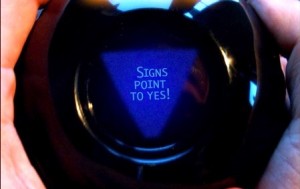 Emily Shepard is a pretty normal girl living in northern Vermont--kind of an underachiever, a bit of a wild child, but mostly in a standard high school parties-with-beer kind of way. And it's not too surprising--her parents probably drink a little too much themselves, and fight a little too much. Northern Vermont isn't for everyone, but it's where the job is; Emily's dad runs a nuclear power plant.
Emily Shepard is a pretty normal girl living in northern Vermont--kind of an underachiever, a bit of a wild child, but mostly in a standard high school parties-with-beer kind of way. And it's not too surprising--her parents probably drink a little too much themselves, and fight a little too much. Northern Vermont isn't for everyone, but it's where the job is; Emily's dad runs a nuclear power plant.Then one day, everything goes figuratively up in smoke (literally it's more of a meltdown). A stormy autumn flooded part of the plant; the town is evacuated. Emily finds herself with no parents, no connections, and a last name that is synonymous with "drunken screw-up who destroyed a community." She walks away from the evacuation center, and keeps on walking.
Bohjalian writes Issue books--each one takes an event around some topic and brings you the points of view of different characters, different aspects. Midwifery, holistic medicine, interracial adoption, transsexuality, animal rights. Here you might think you were getting the book about nuclear power, but really you're not--that's not what's explored here at all. This is a book about a homeless teenager--someone who starts out pretty much fine, but a combination of impulsiveness and a bad situation and suddenly she's doing drugs, shoplifting, cutting, and selling sex at the truck stop for cash. Emily is a smart girl, but she's a teenager who can't always deal with her own feelings, and when her situation falls apart, she follows very quickly.
It's about how those little decisions get made, what friendship and family and safety look like when everyone around you is a mess. Why do you walk out of a warm apartment full of sad, stoned kids onto a winter street and never go back? How much of the mess is about the past and how much about the present?
The story is not linear, which I think is a huge strength. Sometimes you'd get glimpses from multiple points in time on the same page. The structure of the book is Before Cameron and After Cameron--a young runaway Emily takes under her wing--but you learn hints of everything. You know someone is going to leave before you even meet them; you know things will fall apart before they even come together.
The structure just makes sense, not only from an emotional standpoint, but also from a pretty practical one--life on the street is a jumble of events and people and problems. They happen in order--the order is never lost--but really, they relate to each other in constellations around issues, and around Emily's attempts to come to terms with her past, her present, her parents, and herself.
I'm really glad to enjoy a Chris Bohjalian book so much again. Someone said I should read Skeletons at the Feast, and I really think I'm going to now. My streak continues!
Note: I received a free copy of this book from NetGalley in exchange for a fair review.






































